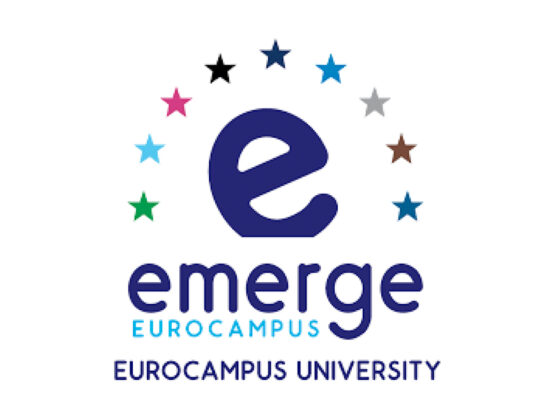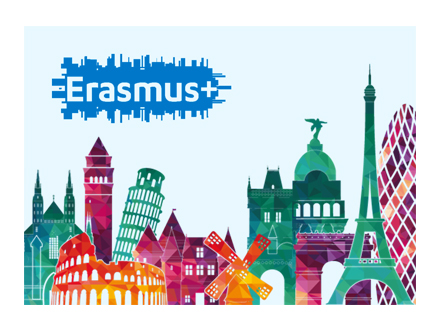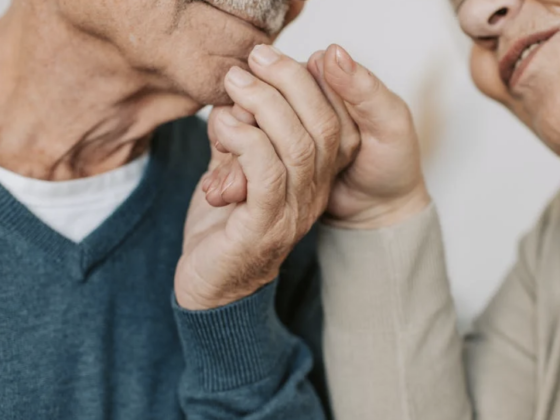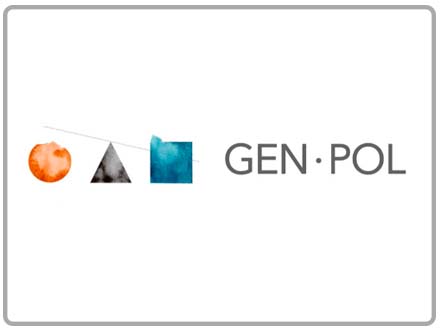Project History
2024
2023
2022
2021
2020
2019
2024
CARE, INEQUALITY AND WELLBEING IN TRANSNATIONAL FAMILIES IN EUROPE: A COMPARATIVE INTERGENERATIONAL STUDY IN SPAIN, FRANCE, SWEDEN AND UK” (PCI2021-121924)
- Funding entity: JPI-More Years, Better Lives. R&D&I «Joint International Programming» 2021, corresponding to the State Program of R&D&I Oriented to the Challenges of Society, within the framework of the State Plan for Scientific and Technical Research and Innovation 2017-2020
- Duration: June 2021- May 2024.
- Coordinator: Ruth Evans, UNIVERSITY OF READING.
- UDC IP: Laura Oso Casas. This innovative comparative research project investigates the relationships between care, inequalities & wellbeing among different generations of transnational families in the UK, Spain, France & Sweden.
- Research team: University of Leeds, University of Aix Marseille, Malmö University, Universidade da Coruña.
Using a multi-sited family-focused ethnographic & participatory action research methodology, the project compares migrant carers’ and transnational families’ experiences within four partner countries with contrasting welfare models, migration regimes & post-colonial legacies. We have selected a diverse sample of 100 transnational families with care needs (25 in each country) of different ethnicities & varying legal status from two contrasting regions in each country to compare experiences at different urban and rural scales, as well as between countries. We engage with 3 or 4 different generations, including family members living in countries of origin/other settlement countries.
The study is providing unique insights into how family care practices are negotiated between & within different generations of transnational families in Europe, while also considering their family ties in countries of origin. This timely project captures the health, economic, social & emotional impacts of the COVID-19 pandemic on transnational families as the crisis unfolds, including changing intergenerational caring responsibilities & mobility strategies. It explores the impacts of care on younger, middle & older generations’ wellbeing & opportunities & how social reproductive & productive work are shaped by intersecting inequalities of gender, age & generation, disability, race, ethnicity/cultural background & socio-economic & legal status.
We hope the project will achieve significant societal impacts by providing a valuable evidence-base to inform policy in improving the wellbeing & equality of transnational families in Europe
Transnational Families in Europe research project: Care, Inequalities and Wellbeing:
EUROPEANS’ UNDERSTANDING AND EVALUATIONS OF DEMOCRACY. REPEAT MODULE, ROUND 10 OF THE EUROPEAN SOCIAL SURVEY.
The European Social Survey (ESS) is an academically driven cross-national survey that has been conducted across Europe since its establishment in 2001. Every two years, face-to-face interviews are conducted with newly selected, cross- sectional samples. The survey measures the attitudes, beliefs and behaviour patterns of diverse populations in more than thirty nations.
IP: Mónica Ferrín is the Principal Investigator of one of the Repeat Module (“Europeans Understandings and evaluations of democracy”) of Round 10 of the ESS (2018-2021). http://www.europeansocialsurvey.org/
SENSGENPOL – SENSitivity in GENder POLitics
- Reference: ED431F 2022/22.
- Funding: Xunta de Galicia, Program for the Consolidation and Structuring of Competitive Research Units – Modality: Excellence Projects
- Duration: 3 years. 2022-2024. Researcher in charge of the project at the UDC: Mónica Ferrín.
- Amount: €65,000.
- Web: https://www.monicaferrin.com/sensgenpol/
CALL FOR PROPOSALS OF THE PROGRAM OF CONSOLIDATION AND STRUCTURING OF COMPETITIVE RESEARCH UNITS, IN COMPETITIVE COMPETITION. CALL YEAR 2022.
- Code: GRC-ED431C 2022/45
- Funding Entity: Dirección Xeral de Promoción Científica e Tecnolóxica do SUG. Consellería de Educación e Ordenación Universitaria, Xunta de Galicia.
- Duration: 4 years 01/01/2022-31/12/2025.
- Amount: 280,000 €.
- Researcher in charge of the project at the UDC: Raquel Martínez Buján
CRISIS, MIGRATION DYNAMICS AND LIVING CONDITIONS OF THE MIGRANT POPULATION IN SPAIN. COMPARATIVE ANALYSIS OF THE EFFECTS OF THE GREAT RECESSION AND THE GREAT PANDEMIC (CRISMIG).
- Funding Entity: Spanish Ministry of Science and Innovation
- Duración: 01/09/2021-31/08/2024
- Principal Investigator: Antía Pérez Caramés
Summary:
This research aims to address the relationship between the crises and the migratory phenomenon in Spain by integrating the analysis of the migratory dynamics and the living conditions of the migrant population under a double comparative angle. On the one hand, the joint look at the implications of the two most recent crises, the Great Recession of 2008 and the current pandemic, and, on the other, the comparative study of four migrant groups, two settled in Spain (migrant domestic workers and seasonal agricultural workers), and two migrants outside Spain (autochthonous youth and re-emigrants from Spain to another European country).
This proposal is part of a theoretical and background reflection that encourages reconsidering the role of crises in a broader time frame of analysis that takes into account their imbrication in long-term socio-structural transformation processes and highlights the importance of comparative and multilevel analysis of the migratory phenomenon. From this angle of analysis, we find contributions that point to the relevance of the strategies of migrants to take root in periods of distress and point to the role of certain labor sectors, such as domestic work and, to a large extent, agricultural work, as refuge niches. The intensification of skilled migrations in periods of crisis has also been pointed out, as well as the strategic nature of the possession of permanent legal residence or even Spanish nationality for the implementation of intra-European mobility strategies.
The research will be developed following an analytical framework that combines the multilevel explanation of the migratory phenomenon, taking into account the mobility and immobility strategies developed by migrants and transnational households, with the comparison of the four groups selected for the study (migrant domestic workers, seasonal agricultural workers, young autochthonous emigrants and re-emigrants from Spain to other European countries).
The methodological approach rests on a multi-method strategy that articulates quantitative and qualitative techniques through a triangulation strategy of sequential character and that incorporates the participation of the main agents involved in the research in the discussion of its results.
Research team:
- Josefina Domínguez Mujica (University of Las Palmas de Gran Canaria, ULPGC).
- Natalia Rivas Quarneti (Universidade da Coruña, UDC)
- Erika Masanet Ripoll (Universitat de València, UV)
- Nuria del Álamo Gómez (University of Salamanca, USAL)
- Antía Domínguez Rodríguez (Universidade da Coruña, UDC)
- Juana Moreno Nieto (University of Cadiz, UCA)
- Iria Vázquez Silva (University of Vigo, UDV)
- Beatriz Ranea Triviño (Complutense University of Madrid, UCM)
- Yoan Molinero Gerbeau (Universidad Pontificia de Comillas, UPC)
MULLERES Á FRENTE DENDE O SUR GLOBAL. INVESTIGACIÓN E INTERVENCIÓN PARTICIPATIVA EN MATERIA DE DESENVOLVEMENTO E IGUALDADE A TRAVÉS DA MÚSICA
- Ref: PR815A-2023-00000012-00 / 2022-PI107
- Funding Entity: Cooperación Galega- Vicepresidencia e Consellería de Presidencia, Administracións Públicas e Xustiza, Xunta de Galicia.
- Duration: 01/01/2023- 31/12/2024
- Amount: 30.000 euros
- Coordinator: Luzia Oca González (USC)
- Partners: Universidade de Santiago de Compostela, Universidade de Vigo, Universidade da Coruña, e ONGD Ecos do Sur
- ESOMI participants: Fernández Suárez, B.; Pérez Caramés, A.; Espiñeira, K. (UDC)
WELCOMINGSPACES- INVESTING IN ‘WELCOMING SPACES’ IN EUROPE: REVITALIZING SHRINKING AREAS BY HOSTING NON-EU MIGRANTS.
- Reference: Project ID:870952,
- Call: H2020-SC6-MIGRATION-2019
- Programme: H2020.
- DG/Agency: REA.
- Coordinator: UNIVERSITEIT UTRECHT – UU.
Beneficiaries: UNIVERSITAET SIEGEN, UNIVERSIDADE DA CORUNA – UDC, Organisation – FUNDACION CEPAIM ACCION INTEGRAL CON MIGRANTES – FUNDACION CEPAIM, ALMA MATER STUDIORUM – UNIVERSITA DI BOLOGNA – UNIBO, FORUM INTERNAZIONALE ED EUROPEO DI RICERCHE SULL’IMMIGRAZIONE – FIERI, SZKOLA GLOWNA HANDLOWA W WARSZAWIE – WARSAW SCHOOL OF ECONOMICS, FUNDACJA OCALENIE – FUNDACJA OCALENIE.
Principal Investigator at UDC: Laura Oso Casas
Duration: 48 months.
HISTORICAL INSIGHTS TO ADDRESS CURRENT CHALLENGES TO THE EU’S FREE MOVEMENT OF PERSONS AS A FUNDAMENTAL RIGHT (FUNDEU)
- Funding body: NextGenerationEU
- Duration: July 2022 – July 2024
- Principal investigator: Dr Cristina Blanco Sío-López
Summary:
This project is based on a historical analysis of primary sources from archives of materials on European integration (HAEU, HAEP, BSEUDC, etc.), which cast light on the transnational roots, debates and conditions surrounding the implementation of free movement of people in the European Union (EU). The overall objective of the project is to highlight the value of critical historical analysis in this area and the legislative legacy on human mobility rights in the European integration process in order to explore current challenges relating to the free movement of people in the EU. Ultimately, this documentary corpus may help us ‘look back’ to ‘see beyond’ as forgotten archives are unveiled and key historical accounts on the topic are brought to light. Until now, the importance of the historical, legal and sociopolitical heritage of free movement of people in the EU as an anchor for the introduction of public policies on human mobility rights as part of the European integration process has been overlooked. Moreover, research on these topics has been dominated by legal, political and sociological studies, while historical analysis in academic spheres has not yet contributed sufficiently to balance their critical perspective. The aim of this project is to bridge this gap through a comparative analysis of the role and impact of the European Parliament (EP) and the European Commission (EC) as paradigmatic observatories of the changing modes of implementation of this ‘fourth freedom’ within the Schengen Area. These two case studies will be explored as part of a broader study on belonging and displacement in a ‘Europe under construction’. With regard to the timeline, the project will examine human mobility rights through a historical analysis of the European integration process from 1985 (establishment of the Schengen Area) to 2015 (an important turning point triggered by the so-called ‘refugee crisis’, which will be analysed as a crisis of governance and solidarity). Changing attitudes towards human mobility rights are a key indicator of deeper social change. Therefore, studying these rights will provide us with expedient tools to interpret the multiplicity of concepts that are emerging in the design of inclusive environments in increasingly globally interconnected societies.
2023
SASHA KAGANSKY’ INTERDISCIPLINARY GRANT 2022 FOR THE GYA PROJECT ‘THE COVID-19 PANDEMIC AND THE PERSONAL EXPERIENCES OF GLOBAL YOUNG RESEARCHERS’
- Project Entity: Global Young Academy (GYA)
- Duration: 01/06/2021 – 01/06/2023
- Amount: 21,500 euros
- Applicant’s contribution: Key scientific staff
- ESOMI researcher: Cristina Blanco Sío-López
https://globalyoungacademy.net/gya-awards-interdisciplinary-grant-2021/?fbclid=IwAR1aantlpw- rfVJSv4mhWQvrCLMWY6-gLJ8NrGz1uAqHInXXWYPdVYug_zI
MONEY IN TRANSFORMATION: ACTORS, PROCESSES AND SOCIAL CONSEQUENCES OF FINANCIAL INNOVATION
- Reference: PID2019-106273RB.
- Funding Entity: Ministry of Science and Innovation. Financing: 49,923 €.
- Duration: 01/06/2020-01/06/2023.
- Principal Investigators: Carlos Maixé Altés and Matilde Massó.
2022
CAPE VERDEAN FAMILIES IN GALICIA. IMPACT FOR THE DEVELOPMENT OF THE TRANSNATIONALIZATION OF CARE AND REMITTANCES (FAMCABOGA)
Financing entity: Xeral Directorate of Foreign Affairs and EU, Xunta de Galicia
Duration: 09/01/2021-11/30/2022
Responsible researcher: Antía Pérez Caramés
Summary:
The project «Cape Verdean families in Galicia. Impact for the development of the transnationalization of care and remittances” aims to carry out research on the transfers of care and also remittances in Cape Verdean families that will later be applied to the production of awareness materials that make visible and value the role of migrant women in the survival and well-being on both sides of the migration stream. These audiovisual materials will focus on several representative cases of the four generations of Cape Verdean migrant women, both in Burela and on the island of origin, Santiago.
The research that will support the audiovisual production addresses the migration and settlement process of the Cape Verdean community in Galicia, paying special attention to two elements: a) the establishment of global chains of care, which favor a transnational organization of care for both people who remain in origin (children, family members, people in a situation of dependency) and the families in the destination countries (the migrant families themselves, but also native families who hire migrant labor as domestic workers); and, b) remittances, both material (economic resources, goods…) and immaterial (care, values…) that circulate in that transnational space created by migrants. Specifically, the impact that these two elements, transnational organization of care and remittances, have on development will be analyzed.
The approach to this theme will have a double longitudinal character, favored by the long history of installation that the Cape Verdean collective has in Galicia. The first wave of Cape Verdean immigrants in Galicia dates back to the 1970s, with a stable migrant community since 1978, currently very diversified with respect to the number of generations that comprise it and the types of family that constitute it. The flow has continued to this day, spanning just over four decades, which will allow us to analyze how the patterns of remittances and care have changed in the different generations of Cape Verdean migrants in Galicia, but also how these have been transformed. patterns over time and the life cycle of migrant families.
On the other hand, the approach will combine the micro and meso levels of analysis, placing special emphasis on individual behaviors and transnational households and families in this regard, as well as on the impact of care and remittances that circulate in the transnational migration space for the well-being of these individuals and families. Remittances, understood in their most material dimension, that is, the flow of monetary resources, constitute one of the main economic resources of Cape Verde at a macro level, representing, according to the latest data available from the country’s Central Bank (2020), something more than 10% of GDP. But this isolated fact hardly explains how the migration process transforms the lives of families at origin, and also obscures the immaterial or social dimension of remittances, namely, the care, values, emotions and ideas that are also transmitted and circulate between the here and there of the migratory space woven between Cape Verde and Galicia.
The relationship between migration and development constitutes a significant challenge in the fight against poverty and the international framework for development cooperation contemplates it. In fact, there is already a long history of academic inquiry into the migration-development nexus, but there are still some questions that this research aims to contribute to answering. The aforementioned link between immigration and development has a place in a new logic that tries to break the binary vision that until now focused on the relationship between a sending country and a receiving country, to talk about social spaces and transnational communities. That is, migrants are not seen as sedentary groups that develop static relationships only in the place where they live (the place of arrival). On the contrary, what we are witnessing is transnational action based on the plural links that migration gives rise to. Multiple and sustained opportunities for transnational action are created by the simultaneous interest of different actors enrolled in these transnational social fields, in which we must include not only the migrants themselves, but also the States, non-governmental entities and business corporations, which shape and enhance the permanent circulation of people, information, merchandise, symbols and capital.
INTEGRATION AND RETURN OF THE “NEW SPANISH EMIGRATION”: A COMPARATIVE ANALYSIS OF SPANISH COMMUNITIES IN THE UK AND FRANCE (PID2019-105041RA-I00).
- Funding Agency: Proyecto I+D+I Retos Investigación, Ministerio de Ciencia, Innovación y Universidades
- Duración: 2020-2022
The purpose of this project is the analysis of recent native Spanish emigration within the framework of studies on intra-European mobility, addressing three main aspects of the experience and the migration project: the motivation for departure, thus accounting for the heterogeneity of profiles among recent Spanish emigrants; the relationship between integration and return; and associations and transnational political activism. These three dimensions are studied by comparing two of the main destination countries in Europe: the United Kingdom and France, which provide differentiated contexts for integration, return and the development of migrant associations, and under an analytical prism crossed by the centrality of two variables. fundamental: gender and position in the life cycle. This analysis will include, first of all, a socio-structural approach to the motivations and profiles of native Spanish emigrants in the United Kingdom and France, their integration processes and the explanatory dimensions of return through sociodemographic contextualization, the development of a typology of emigrants focused on three case studies with groups of au-pairs, health sector professionals and researchers and scientific personnel, and the detailed analysis of the integration and return processes. Secondly, a sociopolitical approach to the phenomenon of recent native emigration will be carried out, focusing on policies aimed at Spanish communities abroad, particularly those of return, and on the transnational associative action of these communities.
The methodological design articulates quantitative techniques, through a comparative sociodemographic analysis of the results of secondary data sources at origin and destination, with the development of a multi-sited ethnography through the technique of semi-structured interviews.
Keywords: Spanish emigration, integration, return, migration policies, France, United Kingdom, intra-European mobility, emigrant associations
Research team
- Carmen Lamela Viera (Universidade da Coruña)
- Renée DePalma Ungaro (Universidade da Coruña)
- Natalia Rivas Quarnety (Universidade da Coruña)
- Rosa María Verdugo Matés (University of Santiago de Compostela)
- Jordi Giner Monfort (University of Valencia)
- Anna Giulia Ingellis (University of Valencia)
- Erika Masanet Ripoll (University of Valencia)
- Alberto Capote Lama (University of Granada)
- Almudena Cortés Maisonave (Complutense University of Madrid)
- María del Mar Pastor Bravo (University of Murcia)
- Work team
- Carlos Diz Reboredo (Universidade da Coruña)
- Inés Viana Moldes (Universidade da Coruña)
- Iria Vázquez Silva (University of Vigo)
- Clara Rubio Ros (Autonomous University of Barcelona)
- Fernando Alberto Barbosa dos Santos Rodrigues (Complutense University of Madrid)
- María José Fernández Vicente (Université de Bretagne Occidentale, France)
- Ana Irene Rovetta Cortés (CONACIT-National University of Jujuy, Argentina)
2021
CARING MATTERS. GENDER IMPACT ON CAREGIVERS OF THE ELDERLY AND DEPENDENT IN TIMES OF COVID- 19
- Principal Investigator: Dolors Comas-d’Argemir
- Funding: €99,542
- Coordinating University: Universitat Rovira i Virgili
- Principal Investigator at UDC: Raquel Martínez Buján
- Dates: 1 July 2020 – 30 June 2021
- Funding Agency: Fondo Supera COVID-19 Santander-CRUE-Universidades Españolas.
- Partner Universities: Universitat de Valencia, Euskal Herriko Universitatea, Universidad Complutense de Madrid, Universidade da Coruña, Universidad de Granada, Universidad de Castilla La Mancha, Universidad de Murcia and Universidad de Zaragoza
Summary:
The health emergency caused by COVID-19 has shown how fragile the social organisation of care of the elderly and care-dependent individuals is, and the impact on female and male carers, both in the family (unpaid) and in the paid sector.
Our research tries to focus on the impact of this crisis on the economic and working conditions of women and men who care for the elderly and dependent persons: family carers, care service workers, domestic and care workers. We focus on social care (vs health), where there is a large presence of women, many of whom suffer from the effects of the pandemic in unequal and precarious conditions. This sector has not been properly understood in the epidemiological analysis of the crisis, nor has it received appropriate political attention. As a feminised sector, all this has had led to an increase in gender inequality.
This project tries to offer visibility to the social dynamics that have had an impact on the care of the elderly and dependent individuals; in particular, how the COVID-19 crisis has affected a highly feminised sector. The social sector of care was practically ignored during the coronavirus crisis until the dramatic situation of old people’s homes unfolded as a new crisis within the health emergency. Lack of attention to this field has had severe consequences for the elderly and dependent persons, and also for those who care for them (for their health, with unknown medium and long-term after-effects). All this might lead to a change in how care is organised that might have some impact on the institutions and services involved, on the ways of caring and on the economic and working conditions of carers.
PROJECT TO IMPROVE THE EQUITABLE ACCESS OF WOMEN AND YOUTH TO ECONOMIC RESOURCES IN SOUTHERN HONDURAS. PHASE 2
- Funding Entity: Vicepresidencia e Consellería de Presidencia, Administracións Públicas e Xustiza da Xunta de Galicia. Galician Cooperation.
- Participating entities: Enxeñería Sen Fronteiras-Galicia and Universidade da Coruña. Duration: 01/01/2020 – 12/31/2021.
- Amount: 22,523.33 euros
- Researcher in charge: Belén Fernández Suárez (Universidade da Coruña)
- Number of participating researchers: 4
MIGRANT ACTIVISM NETWORK. BORDER REGIMES AND MOBILITY RIGHTS.
- Funding Entity: Ministry of Science and Innovation
- Participating entities: Universities Duration: 01/01/2020 -31/12/2021
- Principal Investigator: Ana López Sala (SCIS/Institute of Economics, Geography and Demography) Grant amount: 10,000 euros
- Participating ESOMI researcher: Keina Espiñeira.
GRANTS FOR THE CONSOLIDATION AND STRUCTURING OF COMPETITIVE RESEARCH UNITS IN THE GALICIAN UNIVERSITY SYSTEM. MODALITY A: COMPETITIVE REFERENCE GROUPS (GRC)
- Reference: ED431C 2018/25
- Funding Agency: Galician Ministry of Education, Universities and Vocational Training, Xunta de Galicia
- Duration: 1 January 2019 – 31 December 2021
- Principal Investigator: Laura Oso Casas
- Other Researchers in the Project: 15
2020
GENDER, CROSS-MOBILITY AND TRANSNATIONAL DYNAMICS
- Funding Agency: Spanish Ministry for the Economy and Competition, Spanish Research, Development and Innovation for Society’s Challenges Programme, 2015 Call. Modality 1: “R+D+I Projects”.
- Duration: 01/01/2016 to 31/12/2019 – Extended 31/12/2020
- Coordinating Investigator: Laura Oso Casas.
Summary:
The general objective of this research project is to analyse “cross mobilities” in the framework of the current transnational dynamics and “superglobalisation”. In the context of the migratory cycle change that took place after the 2008 financial crisis, we will study the resilience strategies of families of foreign origin in Spain and the Spanish population currently migrating to Europe from a gender and intergenerational perspective. In order to study cross mobility we will focus on four axes: geographical and social mobility, the intersection between mobility and gender and generation, the articulation of mobility strategies of families of foreign origin and of Spanish origin, as well as the relationship between mobility and immobility strategies.
Research Team:
Concha Carrasco Carpio (Universidad Alcalá de Henares)
Almudena Cortés Maisonave (Universidad Complutense de Madrid)
Montserrat Golías Pérez (Universidade da Coruña)
Mercedes Jabardo Velázquez (Universidad Miguel Hernández)
Irene Masdeu (Universidad Autónoma de Barcelona)
Amelia Sáiz López (Universidad Autónoma de Barcelona)
Ana Sánchez Bello (Universidade da Coruña)
Working Group:
Paula Alonso Pardo (Universidade da Coruña)
Esther Cano Ruíz (Universidad de Salamanca)
Belén García Cabeza (Universidade da Coruña)
Natalia Ribas Mateos
Laura Suárez Grimalt (Universidad de Barcelona)
Website: https://movilidadescruzadas.es/
2019
THE NEW EMIGRATION FROM SPAIN
- Funding Agency: Spanish Ministry for the Economy and Competition.
- Duration: 2017-2019
- Coordinating Investigator: Antía Pérez Caramés.
The goal of this project is to analyse recent migration processes from Spain to different European destinations in the framework of the migratory cycle change in our country. Our perspective considers the articulation of individual and family strategies and labour and educational trajectories to explain the individual migratory projects, while we explore how a transnational political community is created. This research considers a double comparative perspective: a) between two groups of migrants: Spanish locals and those people linked to immigration in Spain (both as actors, then remigrants; or their 1.5 and second generation descendants); and b) across three host countries: the United Kingdom, France and Germany, as the three main destinations for these new migrants in numerical terms. The analysis shall include a sociodemographic approach to the migration process in Spain; a socio-structural approach to the migrants’ trajectories, their migration strategies and social mobility aspirations, interlinked with the family and gender dimensions; and a study of the practices of transnational activism in this new Spanish migrant community. The methodology combines quantitative sociodemographic analysis by comparing the results of Spanish sources with those from the host countries; with qualitative analysis: multi-sited ethnography, participant observation, semi-structured interviews, focal group discussions and virtual ethnography.


















